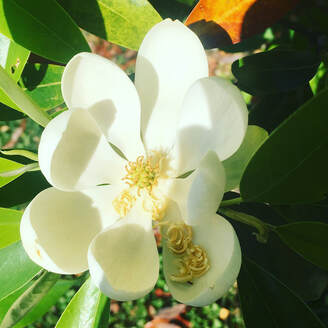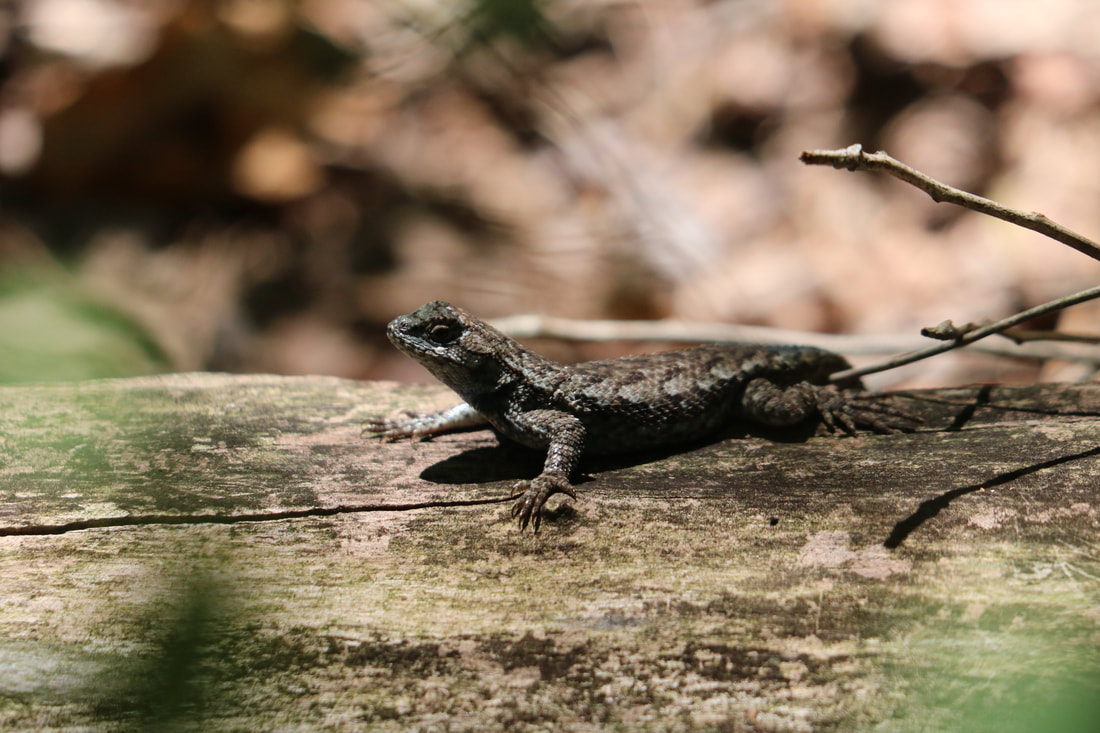
I recently discovered some anthologies that include many of the Southern Nature Project authors. The Woods Stretched for Miles: New Nature Writing from the South (1999, UGA Press), edited by Jon Lane and Gerald Thurmond, includes essays by several talented nature writers.
John Lane and Gerald Thurmond are talented authors, but they did not include any of their own works in this anthology.
Rick Bass (Mississippi) is acknowledged as a master of the short story and has published several fiction and nonfiction books. His essay “Good Day at Black Creek,” set in Mississippi, is drawn from his collection of essays Wild to the Heart, published by Stackpole Books. It is the story of a backpacking trip in Black Creek Wilderness, an area proposed for protection as a designated wilderness area.
Jan DeBlieu’s essay “Hurricane” is set in North Carolina and drawn from her book Hatteras Journal which is recognized as essential reading for coastal conservationists. She has published additional books on the topic.
Wendell Berry has been called the dean of southern writers. His essay “The Making of a Marginal Farm” is set in Kentucky and included in Recollected Essays (1980). It has since been published in other anthologies.
Eddy L. Harris contributed his essay “Vicksburg,” which is set in Mississippi. It also appeared as part of his book Mississippi Solo in which he described his canoe trip down the length of the Mississippi River.
Franklin Burroughs received the John Burroughs medal for distinguished nature writing for his book Confluence: Merrymeeting Bay. For this volume, he contributed “Lake Waccamaw to Freelands,” chapter two of his book The River Home, in which he describes a canoe trip on the Waccamaw River. The essay is set in the Carolinas.
Christopher Camuto contributed the essay “Old Growth” from his book Another Country: Journeying Toward the Cherokee Mountains. It is set in North Carolina. With a nature sensitive to the landscape, he speaks about how to recognize the transition from forest to old-growth forest. He has written extensively about fly fishing and other sports. Other books include A Fly fisherman’s Blue Ridge and Hunting from Home.
Susan Cerulean contributed an essay set in Florida about field research on Swallow-tailed Kites. She has completed a book on these rare birds and several other books on natural history.
Stephen Harrigan contributed “The Soul of the Treaty Oak,” an essay about a famous live oak, an unknown person killed with an herbicide. Several twists and turns of the story reveal unique aspects of the culture of Austin, Texas.
James Kilgo was a long-time professor at the University of Georgia. His essay “Actual Field Conditions” describes the difficulties of bird research in the field and is excerpted from his book Deep Enough or Ivorybills.
Janet Lembke contributed the essay “River Time,” which first appeared as part of her book by the same title, set in North Carolina.
Barry Lopez contributed the essay “Theft: A Memoir,” which is set in Georgia and first appeared in his book, About this Life. He is the author of numerous fiction and nonfiction books.
Harry Middleton authored the essay “Bagpipes on Hazel Creek,” in which he described Hazel Creek’s value as a trout fishing stream and the appearance of a mysterious piper in the surrounding wilderness. The essay this essay is set in North Carolina and includes a description of Horace Kephart and his efforts to preserve the Great Smoky Mountains and Blue Ridge. Middleton died in 1993 after authoring two acclaimed nonfiction books.
Janisse Ray is a resident of Georgia and an advocate for the Longleaf Pine Forest, the community of plants and animals it supports, and the Altamaha watershed. Her essay “Whither Thou Goest” is a rare look at her time in Montana, where she completed an MFA degree.
Bland Simpson contributed the essay “The Great Dismal,” the final chapter of his book by the same name and set in the Great Dismal Swamp.
Mary Q. Steele contributed the essay “The Living Year,” set in Tennessee. It is an excerpt from her book with the same title. She wrote natural history and children’s literature.
Archie Carr was a herpetologist and noted expert on marine turtles. His essay “Living with an Alligator” is an excerpt from his book of collected essays, A Naturalist in Florida.

 RSS Feed
RSS Feed